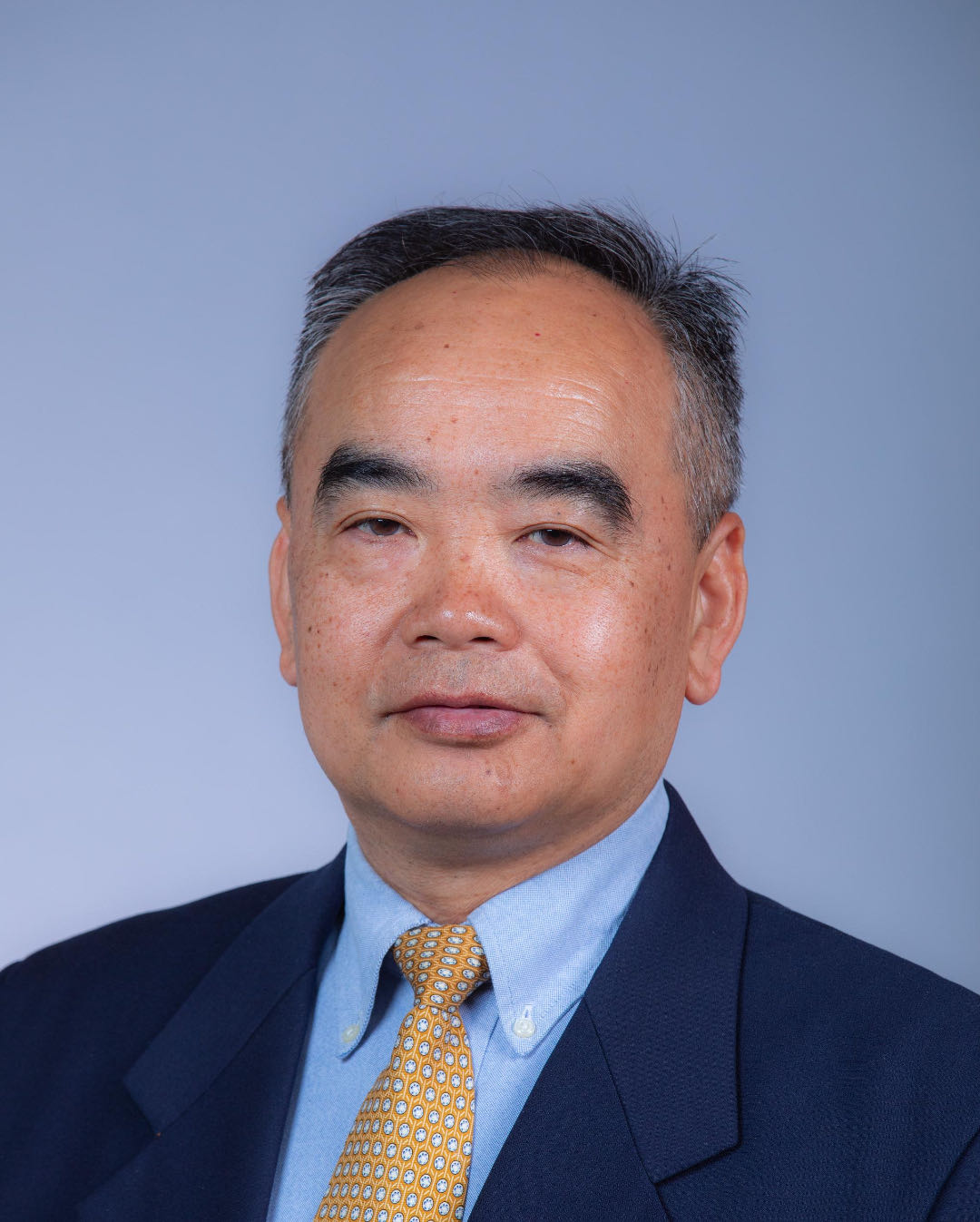

题目:Development of Advanced Diagnostic Techniques to Study Complex Multiphase Flows/Decarbonizing Multi-industries through Valorization of Sustainable Resources
时间:2024年6月3日 14:00
地点:hga010网页登录 振华会议室
报告题目:Development of Advanced Diagnostic Techniques to Study Complex Multiphase Flows
报告人:Prof. Hui Hu(Iowa State University)
邀请人:齐飞 教授(航空动力研究所)、刘应征 教授(叶轮机械研究所)
Biography
 Dr. Hui Hu is an Anson Marston Distinguished Professorship in Engineering and Martin C. Jischke Professor in Aerospace Engineering at Iowa State University. His research interests include laser-based flow diagnostics, aircraft/aero-engine icing physics and anti-/de-icing; green aviation and electric propulsion; supersonic/hypersonic aerodynamics; renewable energy and wind turbine aeromechanics. He is an ASME Fellow and AIAA Associate Fellow and received several prestigious awards in recent years, including 2006 NSF-CAREER Award; 2007 Best Paper in Fluid Mechanics Award of IOP Publishing UK; 2009 AIAA Best Paper Award in Applied Aerodynamics; 2012 Mid-Career Achievement in Research Award of Iowa State University; 2013 AIAA Best Paper Award in Ground Testing Technology; 2014 Renewable Energy Impact Award of Iowa Energy Center; 2022 AIAA Best Paper Award on Gas Turbine Engine; and 2023 D.R. Boylan Eminent Faculty in Research Award of Iowa State University.
Dr. Hui Hu is an Anson Marston Distinguished Professorship in Engineering and Martin C. Jischke Professor in Aerospace Engineering at Iowa State University. His research interests include laser-based flow diagnostics, aircraft/aero-engine icing physics and anti-/de-icing; green aviation and electric propulsion; supersonic/hypersonic aerodynamics; renewable energy and wind turbine aeromechanics. He is an ASME Fellow and AIAA Associate Fellow and received several prestigious awards in recent years, including 2006 NSF-CAREER Award; 2007 Best Paper in Fluid Mechanics Award of IOP Publishing UK; 2009 AIAA Best Paper Award in Applied Aerodynamics; 2012 Mid-Career Achievement in Research Award of Iowa State University; 2013 AIAA Best Paper Award in Ground Testing Technology; 2014 Renewable Energy Impact Award of Iowa Energy Center; 2022 AIAA Best Paper Award on Gas Turbine Engine; and 2023 D.R. Boylan Eminent Faculty in Research Award of Iowa State University.
Abstract
The talk will start with a description of the recent progress made by the speaker in developing a novel molecule-based flow diagnostic technique, named as Molecular Tagging Velocimetry and Thermometry (MTV&T), for simultaneous measurements of flow velocity and temperature distributions in fluid flows. The uniqueness of the MTV&T technique will be demonstrated from the application examples to study the thermal effects on the wake instabilities behind a heated cylinder, to quantify the transient behavior of electroosmotic flows in electrokinetically-driven microfluidics, and to characterize the unsteady heat transfer of flying spray droplets and quantify the dynamic phase changing process within micro-sized icing water droplets pertinent to aircraft icing and de-/anti- icing applications. A novel digital image projection (DIP) technique will also be introduced to achieve quantitative measurements of the droplet/film thickness distributions to quantify the dynamic impact process of water droplets onto solid surfaces with different impact velocities and surface wettability. The quantitative measurements are very helpful to improve our understanding of the important micro-physical processes pertinent to aircraft icing phenomena for the development of more effective anti-/de-icing strategies for aircraft icing mitigation.
报告题目:Decarbonizing Multi-industries through Valorization of Sustainable Resources
报告人:Prof. Xianglan Bai(Iowa State University)
邀请人:齐飞 教授、周忠岳 副教授(航空动力研究所)
Biography
 Dr. Xianglan Bai is a Professor in the Departments of Mechanical Engineering and Chemical and Biological Engineering at Iowa State University (ISU). She is serving as the Associate Chair for Research of the Department of Mechanical Engineering and an Entrepreneurship Fellow at ISU College of Engineering. Dr. Bai is an Executive Board member and the Topic Area Leader for the DOE's Multi-University Center for Chemical Upcycling of Waste Plastics. She is also a core member of ISU's Bioeconomy Institute, the Polymer and Food Protection Consortium, and the NSF Center of Bioplastics and Biocomposites. Dr. Bai received her BS and MS in Aerospace Engineering from BUAA, China, and PhD in Mechanical Engineering from the University of Tokyo, Japan. After working as a postdoc at Michigan State University and a research engineer at Sukra Helitek, Dr. Bai joined ISU in 2013 as a tenure-track assistant professor and was promoted to associate professor in 2019 and full professor in 2024. Dr. Bai’s research program has been funded by various federal agencies and industrial sponsors, such as the NSF, DOE, DOA, ExxonMobil, and ConocoPhillips.
Dr. Xianglan Bai is a Professor in the Departments of Mechanical Engineering and Chemical and Biological Engineering at Iowa State University (ISU). She is serving as the Associate Chair for Research of the Department of Mechanical Engineering and an Entrepreneurship Fellow at ISU College of Engineering. Dr. Bai is an Executive Board member and the Topic Area Leader for the DOE's Multi-University Center for Chemical Upcycling of Waste Plastics. She is also a core member of ISU's Bioeconomy Institute, the Polymer and Food Protection Consortium, and the NSF Center of Bioplastics and Biocomposites. Dr. Bai received her BS and MS in Aerospace Engineering from BUAA, China, and PhD in Mechanical Engineering from the University of Tokyo, Japan. After working as a postdoc at Michigan State University and a research engineer at Sukra Helitek, Dr. Bai joined ISU in 2013 as a tenure-track assistant professor and was promoted to associate professor in 2019 and full professor in 2024. Dr. Bai’s research program has been funded by various federal agencies and industrial sponsors, such as the NSF, DOE, DOA, ExxonMobil, and ConocoPhillips.
Abstract
Increasing energy demand and escalating environmental issues are grand challenges to overcome. In this context, our research group carries out transformative research to contribute to energy and environmental sustainability. This talk will provide an overview of our recent progress in producing sustainable fuels, chemicals, and green materials by developing novel technologies to convert non-edible biomass, waste plastics, and CO2. By combining polar aprotic solvent and plasma treatment, we enabled low-energy, selective conversion of biomass to produce levoglucosenone, furfural, and selectively oxidized lignin in one pot. We developed a non-thermal plasma method to co-convert waste plastics and CO2 into oleochemicals in high selectivity. In the research area of sustainable materials, we develop novel synthesis methods to produce low-cost green carbon fibers and nanocarbons. We also developed a self-regulated joule heating method to synthesize functionalized carbon nano-onions using biochar or lignin as feedstock. We further applied it to enable nanoengineered thermal plastics with superior properties.

